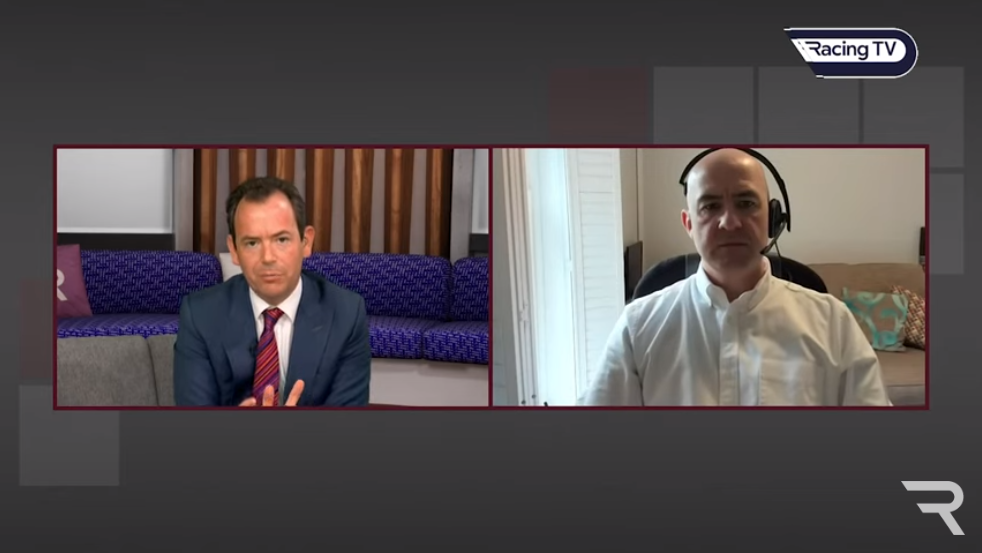
Rhodes vs Luck: post match analysis
When the fun stops, stop.
Equally, when you find yourself watching Nick Luck interviewing Andrew Rhodes (Chief Executive of the UK Gambling Commission) on YouTube at midnight on a Sunday night, it could be God’s way of intervening in a dangerous addiction to thinking about affordability checks in gambling.
But nevertheless, it is a fascinating interview. Nick Luck is a fine journalist and on this occasion, he was open in presenting the operator case against checks, or at least against the confusion currently surrounding them. As such, the 20 minutes of sparring was very much the heavyweight contest we’ve been waiting for. Even if we didn’t necessarily learn that much.
Some random observations follow.
When we can’t know who is at risk, checks are inevitable
Whilst Nick pushed Andrew for clarity, we didn’t get a huge amount. As has been the case previously, no certainty or number was forthcoming. Then the conversation was bogged down in debate over the number of punters who are ‘at risk’, presumably in order to demonstrate that if 95% (or whatever number) of bettors are merely recreational, then affordability checks on a broader audience are pointless.
I felt this missed the mark entirely. The entire point is that we don’t know who is at risk. Affordability checks, as they are employed today, are designed to ensure that operators check that high-staking customers can afford their spending.
They aren’t required across the board, indeed, they aren’t a tool to eliminate ‘problem gambling’ either. They are a tool to prevent serious financial harm from occurring as a consequence of gambling getting out of control. They are, as the name suggests, a check: “can you really afford this”?
As long as stories of great personal tragedy associated with gambling continue, can we really in good faith argue against getting an answer to that question?
Friction is what matters
“Friction on the way in, and friction on the way out” was how Nick described the experience of punters today. We agree that friction is bad. Our entire business exists in order to reduce it! And we also agree that checks should be limited to when they are probably necessary.
But there isn’t a substitute for looking at real financial data when an individual is spending at levels clearly over average disposable income - which is when affordability checks should kick in. What we need as an industry is real clarity around when exactly checks need to take place (as noted above, we didn’t get it) and a way to perform these checks that makes them as painless as possible for everyone concerned (we’re working on that side of the equation!)
Between those two things, we should be able to remove friction entirely for one group of customers, and reduce it greatly for those who still need to go through affordability and AML checks.
Punters are still confused
Mention of ‘friction on the way out’ reminds us that punters are still unclear about what precisely an affordability check is. Because they don’t take place when a customer is trying to withdraw money. That would be an AML or KYC check, and (let’s be honest) in many cases operators seem much keener to ask these questions when customers are withdrawing, rather than depositing.
Comments on YouTube confirm this confusion, with people telling stories that are obviously related to risk decisions, for example. And no wonder, because at the moment punters are being encouraged to believe that any time they can’t get a bet on, it is all the fault of affordability checks. Anyone who understands the industry knows this is absolutely not the case. Money is refused by operators for all sorts of reasons.
We might be able to progress the conversation if operators had to be up-front about the reason for either performing checks, or straightforwardly refusing a bet.
Nobody owes horse racing a living
As a keen racing enthusiast, it pains me to write this. But should horse racing as an industry really be entirely dependent on the betting levy, and should it be so casual about the potential social harms behind that money?
To listen to some, you would never dream that yearlings continue to change hands for millions, and that it costs several hundreds of thousands of pounds to send your horse on a date with Dubawi or Frankel. Like it or not, as long as horses are bought and sold for huge sums of money, the perception will be that the industry is funneling money to the top rather than the bottom.
Whilst a fair levy on betting can and should be a part of the funding model for racing, it cannot simply hope to collect that money in ignorance of (or simply not caring about) where some of it comes from, and those pleading poverty might want to consider what the industry as a whole can do to ensure it’s own sustainability in the future.
As a final point, one is entitled to raise an eyebrow at the desperate pleading to disambiguate horse racing from casino and fixed odds games, particularly in the wake of the Jockey Club’s decision to accept sponsorship from Playtech (I suspect Nick would agree, to be fair). And operators themselves have never hesitated when it comes to adding these products to their offerings.
But operators have a point
All this said, I come back to what was briefly discussed at the head of this piece. Operators are entitled to expect clarity from the Gambling Commission. Fuzzy, vague “recommendations” and suggestions are just a recipe for trouble, almost designed to ensure that no matter what an operator does, they can be found ‘guilty’ if necessary.
Andrew quite rightly spoke about some big numbers when it came to customer losses at the start of the interview. But how about being unambiguous about when operators need to check? It isn’t enough to claim that there are ‘many factors’. If an operator should not let a customer lose more than a specific amount, say what that amount is.
Our over-riding sense when speaking to operators is that they are desperate for this number. Hopefully the whitepaper will deliver.








